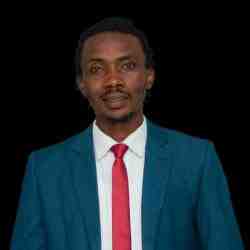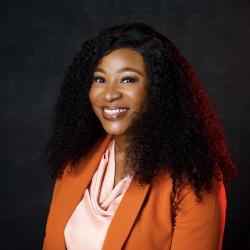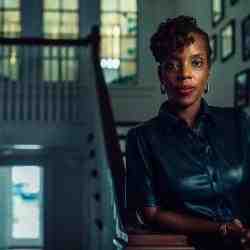Introduction
Howard Weinstein’s business model gives access to low-cost, high quality hearing aid technology to the low-income people in developing countries that need it most. His deaf employees are taught to become leaders and advocates for the full inclusion of hearing-impaired people in society.
The New Idea
Howard is building an alternative social business model and set of economic transactions to supply and distribute hearing aids to low-income, hearing-impaired persons. He manufactures hearing aids run on new solar-powered battery technology, freeing hearing aid users from the economic burden of buying regular zinc batteries at US$1 per week. Through the broad distribution of these hearing aids, especially to children at a critical time in their development of speech and cognitive abilities, Howard will create new access to hearing aids and improved social integration for the largely excluded population of low-income hearing impaired people in the developing world.
Howard’s partnership with the Brazilian public health system offers the government a low-cost, high quality hearing aid to distribute to many more people. He also offers an alternative to private audiologists, giving them the opportunity to sell their services and products at lower cost and for the first time, to tap into a huge bottom-of-the-pyramid client base.
Driving Howard’s efforts is the idea of using his new technology as an instrument for empowering disabled people to push for changes in the way deaf people are viewed and treated in Brazilian society. Howard’s business model notably employs deaf people to manufacture the hearing aid technology because of their highly developed manual dexterity. He focuses on his deaf employees as a unit for creating leaders within the deaf community, teaching them the skills to train other deaf people and encouraging them to build their own initiatives. Within the next several years, Howard plans to distribute 1 million hearing aids to users across Latin America.
The Problem
According to the World Health Organization (WHO), hearing impairment affects almost 300 million people around the world, 80 percent of whom are in developing countries. Brazil alone has approximately 5 million citizens with some type of hearing impairment. In most cases, hearing-impaired people with hearing aids have a much greater chance of integrating into society and functioning as full citizens. Yet hearing aid production globally meets only 10 percent of global demand; only one hearing aid in forty reaches people in developing countries.
Low-income customers in developing countries have difficulty accessing hearing aids in part because of the concentration of hearing aid production in only five large multinational companies. These companies target a high-income market in industrialized countries, so hearing aids are expensive to buy and maintain. According to the WHO, hearing aids cost between US$200 to US$500, and most people need two. In Brazil, the average price of each hearing aid is US$300. Prices vary according to the degree of loss of hearing, making them even more expensive for those who most need them. Hearing aids also run on the zinc batteries, which cost around US$1 per week for the hearing aid user, significantly increasing the cost of use and often resulting in hearing aids not being used, even if they are donated to low-income users.
Lack of hearing aids has particularly severe consequences for babies and children, for whom hearing is essential to develop speech and cognitive abilities. The Brazilian government is implementing programs aimed at early diagnosis of hearing impairments, but has not been able to provide adequate treatment (which includes hearing aids among other speech and hearing treatment) at a national scale. The Brazilian health care system has 87 health centers equipped in audiology; these centers distribute around 150,000 hearing aides per year, primarily in the south and southeast regions of the country. These devices are purchased by the government at very high prices, ranging from US$250 to US$1,100, which limits the government’s capacity to purchase large quantities of hearing aids for broad distribution for those who need them most.
Hearing impaired Brazilians face barriers to societal integration on many levels, ranging from a lack of support in schools, which results in poor academic achievement, to lower wages and fewer opportunities in the labor market. These difficulties reflect broader cultural patterns of prejudice and ignorance about the needs, competencies, and abilities of the hearing-impaired. This prejudice undermines the self-esteem, autonomy, and social networks of hearing-impaired people.
The Strategy
Howard’s business model shifts incentives for relevant stakeholders all along the productive chain to manufacture and make available a medical product whose ultimate purpose is to serve the public good.
At the most basic level, Howard expands access to hearing aids through a new technology, which he developed in coordination with suppliers, technicians, and engineers: A hearing aid run on rechargeable solar-powered batteries. He was asked to create this product by an organization in Botswana, where he worked for several years before moving to Brazil. Rechargeable hearing aid batteries remove the largest barrier for low-income people in accessing hearing aids; extending battery life from one week to two to three years makes even free hearing aids affordable for the first time. The batteries are compatible with any hearing aid on the market. As well as lowering the operating cost, Howard’s new technology lowers the purchase cost of hearing aids to around US$75 to US$90. Howard continues to push technological boundaries, for example, now developing digital hearing aids, which will allow him to manufacture only one higher-quality device for all levels of impairment instead of the sixty or more different devices currently on the market.
At the beginning of the chain, Howard’s more than fifty partner suppliers of hearing aid parts worldwide are given an opportunity to put social responsibility at the core of their businesses and still serve their bottom line. They agree to be flexible, for example, in the quantities Howard orders as he develops new technologies.
Through the Hospital das Clinicas, an important hospital in Brazil, Howard has created a production line in the city of Sao Paulo with a start-up production capacity of 2,400 hearing aids, 6,000 solar chargers, and 10,000 solar batteries per month. In three years, Howard forecasts a production of 25,000 hearing aids, 36,000 solar chargers and over 100,000 solar batteries. He employs young people and pays them competitive wages. With the increase in production, he expects to reach 250 deaf people. Howard emphasizes employee development, and has created an 18-month training program in which employees develop skills ranging from basic production techniques to an international certification in aviation surface welding. In addition, a deaf educator on staff teaches employees social integration techniques—how to better express themselves, how to cash checks and open a bank account, and so forth. Howard’s goal is that they are empowered to the point where they can teach others; the deaf workers he trained in Botswana are coming to Brazil to train his new employees in manufacturing skills. Employees understand that they are working for an organization, rather than a company, and will be called on to train others in the future and lead efforts to push for the social integration of deaf people.
Howard trains only deaf people in the highly-skilled, difficult task of manufacturing the hearing aids because of their manual dexterity and highly developed hand-eye coordination. In doing so, he shifts the paradigm of Brazilian corporate disability culture, which complies with Brazilian law by meeting a quota in selecting individuals for their disabilities. In Howard’s view, he is pioneering in his quest for deaf employees because of the abilities that qualify them, over everyone else, to do this work. It is a fundamental step towards shifting the way deaf people view themselves and are viewed in Brazilian society. In a parallel effort, he advises and negotiates with companies in the region to hire hearing-impaired persons.
In distributing his technology, Howard targets babies and children, for whom access to hearing aids can have the greatest impact, giving them access to education, social life, and eventually, jobs that they would not have had otherwise. Howard has created a partnership with the Brazilian health care system to create an economy of scale in distribution: For the first time, the government has access to lower cost hearing aids that can be distributed to a greater number of people through free health clinics. The Hospital das Clinicas has already committed to purchase 4,800 hearing aids a year. Howard also targets audiologists with private practices to distribute his hearing aids. Most audiologists receive perks from the large hearing aid manufacturers to market mainstream hearing aids, but Howard gives them a different incentive: Selling products at a lower cost to an untapped bottom-of-the-pyramid market. He also offers them the opportunity to use their professional skills in a new role; serving disadvantaged populations.
Among Howard’s concerns is ensuring the earliest possible diagnosis and treatment of hearing problems in children. Because diagnosis by the Brazilian health care system is largely restricted to urban areas, Howard has created a system of mobile laboratories for clinical tests of children in impoverished, rural, and isolated regions. These laboratories are staffed with a surgeon, audiologist, testing equipment, and medication. This enables Howard to achieve broader coverage in diagnosis and later treatment.
Rather than work through an organization of his own, Howard works through a variety of partnerships in the public and social sectors. In addition to manufacturing the hearing aid products at Hospital das Clinicas, he partners with the Foundation for Popular Remedies to coordinate all contact with the public sector for distribution of the hearing aids through the state health system. He also works with the University of São Paulo, which works on new technological innovations and supplies some electronic components. All profits from sales of the hearing aids go towards funding social programs for the deaf and hearing impaired, including the education programs described below.
At the heart of his efforts to empower deaf people to be active leaders in and for the hearing- impaired community, Howard is working with the University of São Paulo to create a training course for deaf people. He has helped build a three-year certification program focused on the construction of language for the hearing impaired, including both knowledge of sign language and comprehension of basic societal trends that isolate hearing-impaired people from society. After completing the training, students become trainers of sign language and initiators of other social change for the disabled. They are encouraged to focus on changing basic institutions that pose difficulties for the hearing impaired. This idea stems directly from Howard’s experience in Botswana, where he led deaf employees at the manufacturing plant to work with a bank chain to make its services accessible to disabled people throughout the country, teaching bank tellers sign language, encouraging the bank to add Braille to its ATM machines, and lowering selected counters for people in wheelchairs. Deaf professionals also developed an outreach program for HIV/AIDS education for other deaf people, who do not have easy access to information on radio and television. Starting with the unit of employees manufacturing hearing aids and including others enrolled in the training course, Howard hopes to foster the same types of new roles for deaf people and other citizens in Brazil. By training and building up a community of leaders who can push these efforts, Howard is transforming societal structures that isolate the hearing impaired and opening up spaces for their greater participation in society.
Howard plans to make Brazil a distribution hub to all of South America for the package of low-cost hearing aids and solar-powered batteries. He is involved in conversations with organizations in Jordan and Mexico to replicate the manufacturing plant and its accompanying activities for those respective regions, and has established Botswana as a base for distribution in southern Africa. His first step is a feasibility study, to identify the needs of hearing impaired people in different places. In replicating, Howard works through partner organizations, and has found that the best partners are those stakeholders who will later be customers for the hearing aids, including citizen organizations and public healthcare institutions. Finally, he has decided not to patent the technology because he wants it to be copied and spread, but he has established several criteria for organizations who want to replicate his work: 1) they must be nonprofit organizations; 2) they must hire deaf people; and 3) at least 20 percent of their start-up capital must be locally raised. Once organizations meet these criteria, he will teach them to manufacture the technology. The quality of the technology is guaranteed because it must meet industry quality standards to be put on the market.
The Person
Howard was raised in Canada to parents immigrated from Poland and Russia. He earned a Master’s degree in Business Administration at Syracuse University in the U.S., studying issues of consumer protection in particular, before working in various private companies, including his father’s plumbing company. A turning point in Howard’s youth was a trip of almost two years around the world that widened his perspective and understanding.
Eventually he purchased Belanger Plumbing, a plumbing equipment company, where he worked for 18 years. Howard completely restructured the company, saving it from bankruptcy. At a time when the rights of the physically and mentally impaired were only beginning to be discussed, Howard hired and trained eight people with mental disabilities, and paid them similar salaries to the other workers. In 1989, Howard sold his company but continued as the principal executive.
In the midst of his successful professional career, Howard’s ten-year-old daughter unexpectedly passed away. One week later, Belanger Plumbing laid him off. Howard tried to bounce back from the professional loss by creating a new company, but the event had changed his conception of business and his role in it. He decided to work abroad in the field of development, and took a volunteer position with the World University Service of Canada to work at Camp Hill Community Trust, a community for disabled people in Botswana.
During his four years at Camp Hill, Howard implemented the startup company Godisa Technologies, where he employed persons with hearing and physical disabilities, primarily women, and trained them in job skills and also to increase their self-esteem and confidence through their work. Through Godisa, Howard produced three new products: A solar energy powered hearing aid, the Analogue solar charger, and the rechargeable battery. The innovation of these products won Godisa an International Design Award for the best product in Africa in 2005. Within three years, Godisa manufactured more than 60,000 hearing aids and became financially sustainable. Howard was able to turn his attention to helping hearing-impaired people, starting with his employees, integrate into society.
After four years in Botswana, Howard went to Brazil to replicate his social business.




